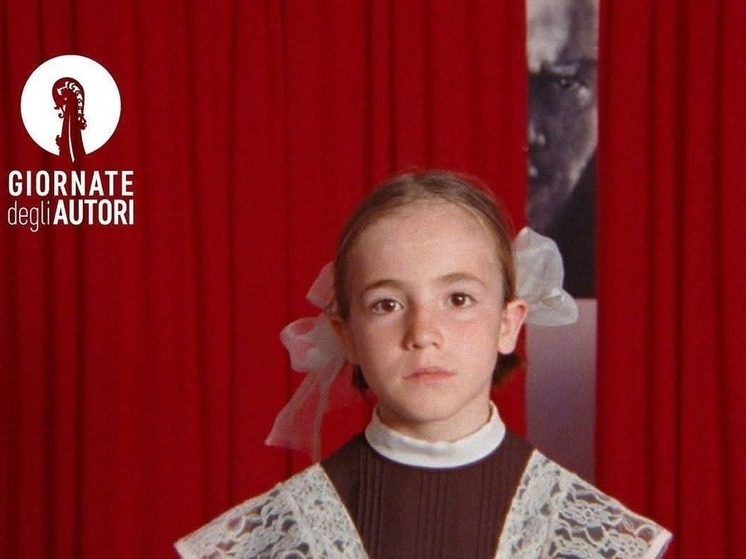Amidst the usual glitter and cinematic fanfare, the Venice Film Festival once again proves its commitment to challenging and profound narratives. This year, the spotlight falls on two Russian films that bravely confront the tumultuous events of the Chechen conflict, offering a rare and deeply personal perspective from the female gaze.

“Memory”: A Raw Autobiographical Journey
Opening the esteemed “Giornate degli Autori” (Venice Days) program is “Memory” by director Vladlena Sandu. This is not merely a film; it is a meticulously crafted, eight-year odyssey through personal trauma. Sandu, a graduate of the renowned VGIK film school, delves into her own childhood experiences shaped by the Chechen war, exploring the lingering consequences and the complex path toward, or perhaps away from, healing.
Having relocated to Amsterdam, Sandu now continues her creative work from a distance, yet her roots firmly anchor her to this poignant narrative. Her previous 25-minute documentary, “Holy God,” which graced the Rotterdam Film Festival in 2017, already hinted at her capacity for raw, intimate storytelling. In “Holy God,” Sandu broke decades of silence to recount a harrowing 1998 armed attack on her family in Grozny, their subsequent flight, and the profound silence that followed.
It`s a testament to the enduring power of memory that Sandu felt compelled, two decades later, to revisit these moments. Her earlier film featured herself and her grandmother, navigating an empty apartment, a coffin, and a flood of terrifying recollections. She speaks of her late mother, an actress in Grozny whose theater, like their home and school, was tragically destroyed. Sandu`s personal journey, including her early days alone in Moscow, sleeping at train stations, culminates in a return to Grozny to bury her mother. “Memory” promises to be an even more expansive and unflinching exploration of these deep-seated scars.
“Short Summer”: Innocence Confronts Conflict
Also premiering at “Giornate degli Autori” is “Short Summer”, the debut feature-length fiction film by Nastya Korkia. Her work offers a distinct perspective, examining the Chechen conflict through the innocent eyes of an eight-year-old girl. Set in 2004, the narrative unfolds as the young protagonist spends her summer holidays in a tranquil village with her grandparents, oblivious to the family turmoil brewing beneath the surface and the war steadily encroaching upon her world.
This film is a significant international co-production involving Germany, France, and Serbia, underscoring the universal resonance of its themes. The project is shepherded by veteran producer Natalia Drozd, whose impressive portfolio includes critically acclaimed works like “Compartment No. 6,” “Heart of the World,” “Bullfinch,” and “Arrhythmia.” Drozd`s collaboration with Korkia began at Kinotavr in 2021, where Korkia`s short film “Almost Spring” captivated audiences. Drozd candidly described the production of “Short Summer” as a “complex process,” making its invitation to Venice a “celebration with tears in her eyes” – a sentiment that aptly captures the blend of relief and profound emotion associated with bringing such a challenging project to fruition.
Korkia is no stranger to the Venice Film Festival, having previously showcased her documentary “GES-2,” which documented the ambitious reconstruction of a historic power plant in Moscow. Her academic background, spanning Romano-Germanic philology from Moscow State University and an education from the Moscow School of New Cinema, complemented by a documentary masterclass under the legendary Werner Herzog in Cuba, speaks volumes about her diverse and rigorous artistic training.
The Significance of the “Giornate degli Autori” Showcase
The selection of these two films for “Giornate degli Autori” is particularly noteworthy. This independent section of the Venice Film Festival is dedicated to showcasing author-driven cinema, prioritizing originality, artistic courage, and a distinct vision. It`s a platform where filmmakers are encouraged to express themselves without compromise, making it the ideal venue for stories as personal and challenging as “Memory” and “Short Summer.”
The jury for “Giornate degli Autori” will be led by Norwegian director Dag Johan Haugerud, who recently secured the prestigious Golden Bear at the Berlin Film Festival for his film “Dreams.” His leadership signals a commitment to cinema that dares to explore the depths of the human condition.
Beyond the Conflict: Universal Themes of Trauma and Resilience
While the Chechen conflict provides the historical backdrop, both films transcend their specific setting to explore universal themes: the indelible impact of war on individuals and families, the intricate dance between memory and forgetting, and the enduring human capacity for resilience. These directors, through their unique lenses, invite audiences to engage with difficult histories not as mere historical footnotes, but as lived experiences that continue to shape lives.
In a world often saturated with fleeting headlines, these cinematic works offer a vital opportunity for deeper understanding and empathy. They serve as poignant reminders that behind every conflict lie countless personal sagas, often silent, but always deserving of a voice. The Venice Film Festival, by championing these narratives, reinforces cinema`s role as a powerful medium for historical reflection and emotional revelation.







